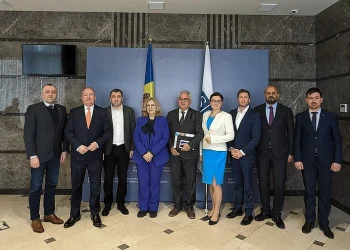The UK government has issued a statement advocating for the modernization of UN peace operations, emphasizing the integration of political strategies and technological advancements.
This initiative aims to enhance the effectiveness of peacekeeping missions amidst evolving global conflicts and declining deployment rates.
Adapting UN Peace Operations to Modern Conflicts
The recent statement from the UK at the UN Security Council underscores the urgent need for UN peace operations to evolve. The focus is on integrating political strategies and leveraging technology to address modern conflict scenarios effectively.
Emphasizing the necessity of this evolution, the statement highlights the decline in peace operation deployments, which have fallen by 40% since 2015, pointing to a critical need for strategic adaptation.
Technological Innovations and Strategic Communication
The UK’s approach includes investing in advanced surveillance systems and counter-misinformation campaigns to protect civilians in conflict zones. These technological tools are essential for enhancing on-ground operations and ensuring the safety of local populations.
Such advancements are aimed at preventing the resurgence of conflicts and managing crises more efficiently, thereby reducing the risks of refugee crises and violence escalation.
Historical Context and Evolution of Peacekeeping Efforts
The statement builds on discussions from the 2025 Peacekeeping Ministerial, which addressed challenges related to deployment and force generation inefficiencies. These discussions are part of ongoing efforts to reform peace operations to meet contemporary needs.
The UK’s stance aligns with the Secretary-General’s review on peace operation reforms, advocating for missions that are both tailored and targeted to specific conflict contexts.
Responses from Industry Leaders and Critics
Industry leaders have recognized the protective benefits of these reforms despite existing resource constraints. However, critics argue there remains a disconnect between pledges made and actual deployments on the ground.
This critique is supported by data from SIPRI, which notes significant challenges in regional mission deployments, emphasizing the need for more effective resource allocation and strategic planning.
Detailed Insights from the UK’s UN Statement
| Category | Detail |
|---|---|
| Deployment Decline | -40% since 2015 |
| Technological Focus | Surveillance systems, counter-misinformation campaigns |
| Historical Context | 2025 Peacekeeping Ministerial discussions |
| Critics’ View | Disconnect between pledges and deployments |
Integrating Regional Cooperation in Peace Missions
The UK’s statement also highlights the importance of integrating traditional peacekeeping with regional cooperation models. This approach is exemplified by the role of UNTSO in supporting new missions through flexible support structures.
This strategy not only addresses the immediate needs of conflict zones but also fosters long-term stability by building regional capacities and ensuring sustained peace efforts.
Charting the UK’s Path Forward: A Commitment to Progress
The United Kingdom has expressed its readiness to collaborate with international partners to ensure the success of these modernized peace operations. This commitment is aimed at making UN peace operations more effective in maintaining international peace and security.
The focus on tailored and targeted strategies reflects a proactive approach to adapting UN missions to the complexities of modern conflicts, ensuring they are equipped to handle current and future challenges.
Additional Reading
Sources: GOV.UK Press Release, Foreign, Commonwealth & Development Office and Caroline Quinn, UK Deputy Political Coordinator.
Prepared by Ivan Alexander Golden, Founder of THX News™, an independent news organization delivering timely insights from global official sources. Combines AI-analyzed research with human-edited accuracy and context.








